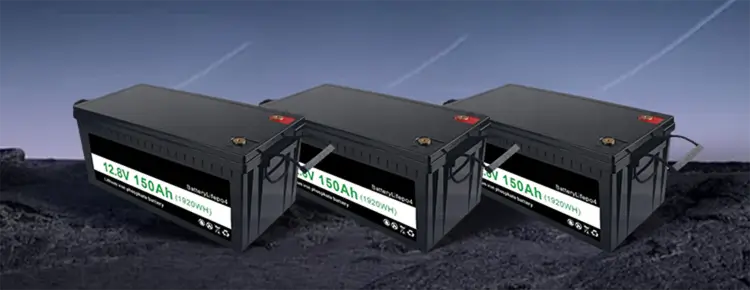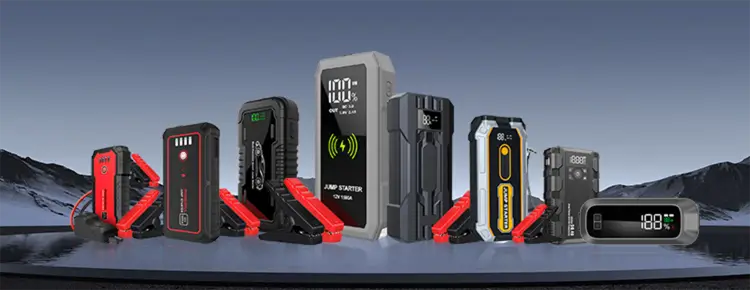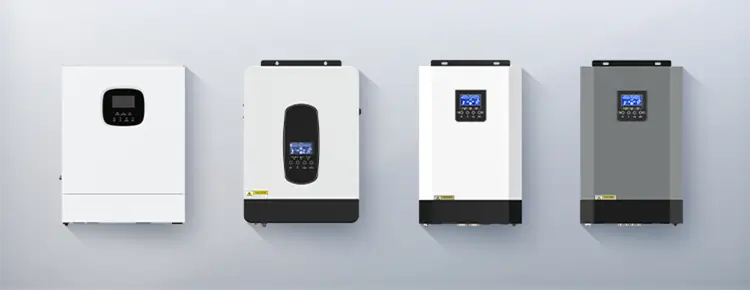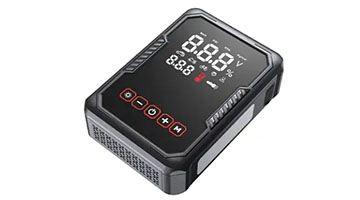



Blog
Hot Category
Latest Blog
17 Mar 2025
Flora
Generally speaking, you should not only look at the capacity of the portable jump starter. The capacity is related to the discharge rate, starting current, and the number of starts. When purchasing an emergency starting power supply, you need to pay attention to the following points:

1. Identify vehicle requirements
Voltage matching: Most family cars are generally 12V, while trucks or buses may be 24V. If you need to deal with multiple models, it is recommended to choose a universal model that supports 12V/24V switching.
Displacement and starting current: The starting current of the car needs to cover 1.5-2 times the battery capacity of the vehicle, and diesel vehicles need higher. For example, Sedan (less than 1.6L): ≥200A; 4.0L gasoline car/2.5L diesel car: ≥500A.
2. Set budget and scenario
Basic model: suitable for daily use in small cars.
High-end model: integrated air pump, large-capacity battery, etc., suitable for outdoor or heavy vehicles.
1. Battery capacity and cell type
Capacity selection:
Gasoline vehicles below 3.0L: 6000-8000mAh;
4.0L gasoline vehicles/2.5L diesel vehicles: 10000-15000mAh;
Heavy vehicles: 32000mAh or more.
Battery selection: lithium polymer batteries and high-rate batteries are preferred, and inferior lead-acid batteries are avoided. On the market, 3-cell and 4-cell series combinations are the most common, and 4-cell products are recommended. Because when the starting current is the same, 4-cell series connection can reduce the volume of the entire battery, making the product more compact and convenient.
2. Starting current and peak current
Starting current: must cover the vehicle's cold starting current (e.g. 100-300A for sedans, ≥400A for diesel vehicles).
Peak current: instantaneous output capacity, affects starting speed (recommended ≥1000A).
3. Security protection and compatibility
Wire clamp selection: Use smart wire clamps for higher safety protection.
Multiple protection: 12 layers of protection such as overcharge, over discharge, short circuit, reverse connection, over temperature are essential functions.
Temperature adaptability: Select products with an operating temperature range of -20℃ to 60℃ to ensure that they can be used in extreme environments.
1. Practical extension functions
Inflator: Automatically detect tire pressure and charge and discharge, suitable for outdoor scenes.
Lighting and SOS: LED lights provide constant light, flashing, and SOS modes, making emergency situations safer at night.
Multi-port output: Supports USB, Type-C, DC, etc., and can charge mobile phones and laptops.
2. Portable design
The weight is controlled at 1-3kg and the volume is compact.
It meets the aviation transportation standards (capacity ≤ 100Wh) and is easy to carry.
Avoid false capacity: Choose products marked with "actual capacity" and be wary of models with a large gap between the nominal capacity and actual output.
Reject inferior clips: insufficient copper thickness or too thin wire leads to poor contact or overheating.
Through the above guide, users can accurately match products according to their own needs. In general, I recommend our YD product, the Car Tire Pump and Jump Starter which integrates emergency starting power supply, air pump, lighting, etc. It relatively well integrates the advantages of several parameters and has a relatively high cost performance, providing users with a reference and comparison.